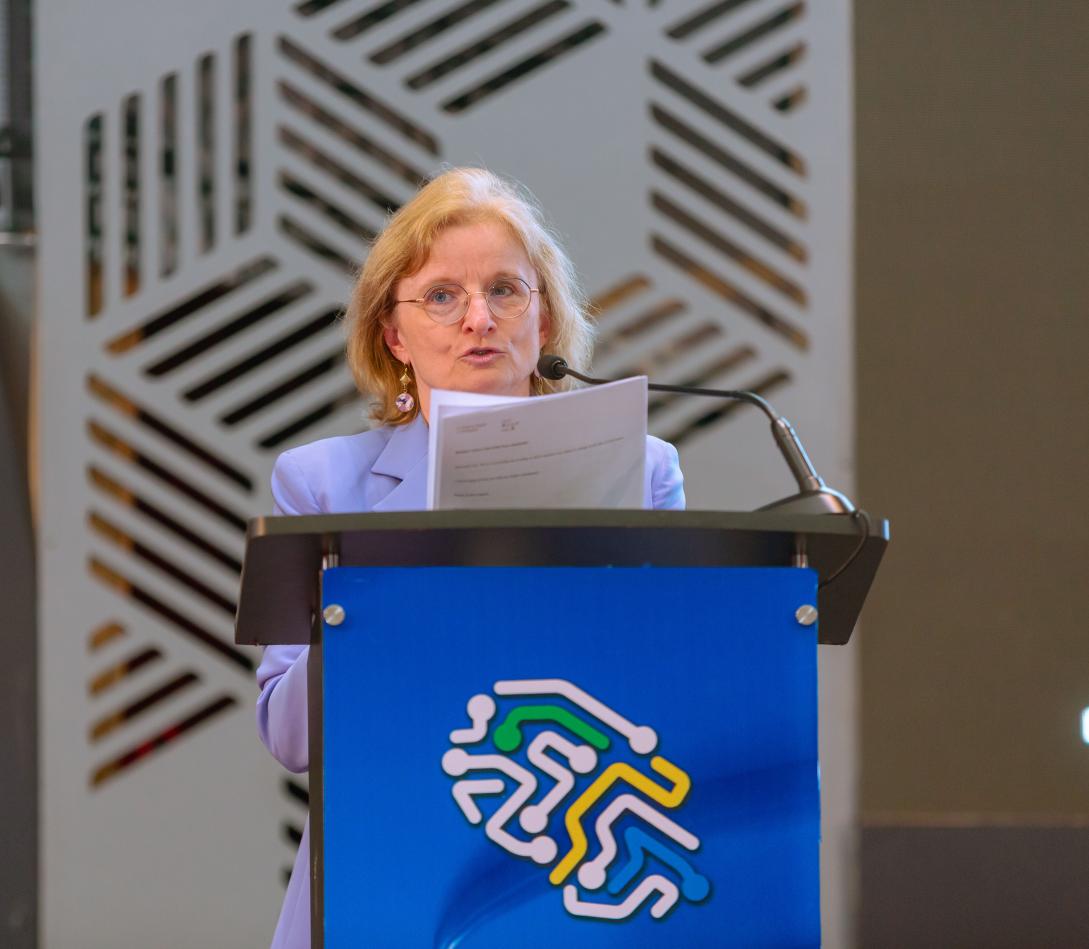Speech by EU Ambassador to Tanzania at the 8th Tanzania Annual ICT Conference

It is an honour to be here with you at the 8th Tanzania Annual ICT Conference, celebrating the power of Artificial Intelligence and robotics for socio-economic digital transformation.
We are standing on the edge of a new era—one where these emerging technologies are profoundly redefining industries, economies, and societies. And this comes with a responsibility.
The question before us is not whether AI will transform our world, but how we will use its potentials for the best of our people, especially the next generations.
We need to reflect together about how we can harness the opportunities, while mitigating the risks and addressing the challenges.
We are already seeing inspiring examples of AI in action in Africa:
- In Tanzania, AI it is increasingly used across a variety of fields; from diagnostic support and health prediction to environmental conservation and even skills and education development.
- In Kenya, AI is being used to revolutionize precision farming, providing real-time information to farmers on soil health and crop conditions, thereby increasing productivity and improving food security.
- In Ghana, AI-powered health solutions are helping predict disease outbreaks, saving lives and enabling targeted healthcare interventions.
However, to truly unlock AI’s opportunities, we must ensure that AI and digital transformation put people at the centre.
The European Union strongly believes in human-centric digital transformation and ethical use of AI and other emerging technology. This means prioritizing approaches that empower people, respect human rights, and promote transparency and fairness. It is about ensuring that technology is used to serve communities and enhance well-being.
The EU’s recently adopted AI Act is a step in this direction, providing a framework that balances innovation with safety and trust.
We are all moving towards data-driven economies and societies. In this context, the EU and its Member States, acting as Team Europe, are eager to strengthen digital partnerships with key partner countries in Africa, such as Tanzania. We share the same vision, and I commend Tanzania’s for placing the people at the centre of the country’s Digital Transformation Agenda 2030.
Digitalisation is a key sector of the European Union’s Global Gateway strategy. We are equipped with a broad set of tools that we can deploy to boost investments and leverage on our expertise to fulfil the expectations of such Digital Partnerships. Not the least, the Global Gateway can unlock over USD 300 billion globally for investments in soft and hard infrastructures that will serve our Digital economies.
This comes with an equal commitment to share knowledge, expertise and assets that the EU has gained over the years while setting up its own Digital Single Market.
This is the experience we want to share, this is our success story. The EU Digital Single Market ranges from policy and regulatory frameworks (for example, the GDPR regulation – general data protection regulation, the Interoperability framework, the Artificial Intelligence Act) to critical assets like the Earth Observation Program Copernicus, and its constellation of Sentinel satellites that generate, collect, and processes a vast array of environmental data.
These data are for example used in Tanzania too for different purposes, or by the EAC Secretariat to map the transit of goods through the region’s strategic corridors.
Let me conclude by thanking for this invitation to speak at the opening of TAIC 2024. I am proud to see many EU experts being here this year to exchange knowledge and ideas with their Tanzanian peers, to learn from one another’s experiences, and chart together our digital futures. Thank you, and I wish you all a productive and inspiring conference.
